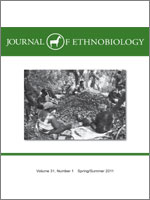Like other native Amazonian peoples, the Yanesha of eastern Peru conceive of plants and trees as having been primordial human beings transformed into their present form at the end of mythic times. The events that led to their transformation can be described as being either “sublime” or “grotesque.” Cultivated plants that underwent a sublime mode of transformation include manioc, the Yanesha staple, as well as maize, beans, peanuts, and cotton. These plants assumed their present form as the result of the self-transformation of powerful demiurges; a luminous, contained transformation that privileged the sensual capacities of the upper body. In contrast, the mode of transformation of barbasco, chili peppers, coca, peach palm, and yam falls on the side of the grotesque, and involves a series of immoral beings that had little control over the activities of their lower bodies. This article seeks to discern the Yanesha rationale behind this particular way of classifying plants. It proposes that sublime origin plants are those that were domesticated the earliest and have thus been part of Yanesha culture the longest. In contrast, those domesticated in more recent times –and thus less central to Yanesha cultural life– are attributed a more earthly, grotesque origin.
How to translate text using browser tools
1 March 2011
The Virtuous Manioc and the Horny Barbasco: Sublime and Grotesque Modes of Transformation In the Origin Of Yanesha Plant Life
Fernando Santos-Granero
ACCESS THE FULL ARTICLE
It is not available for individual sale.
This article is only available to subscribers.
It is not available for individual sale.
It is not available for individual sale.

Journal of Ethnobiology
Vol. 31 • No. 1
Spring/Summer 2011
Vol. 31 • No. 1
Spring/Summer 2011
Amazonia
indigenous cosmologies
plant classification
plant domestication
Yanesha




